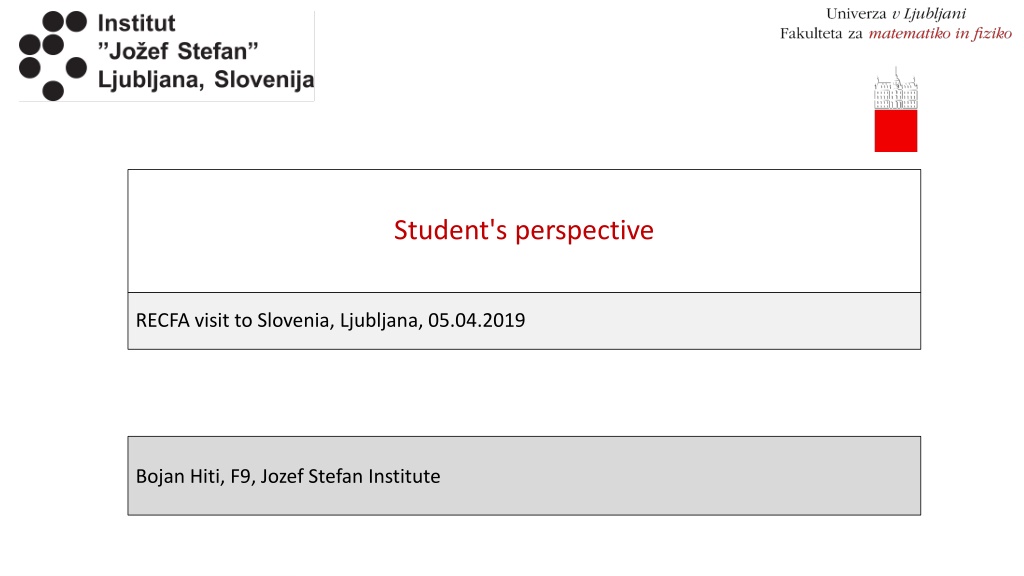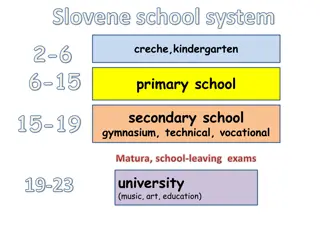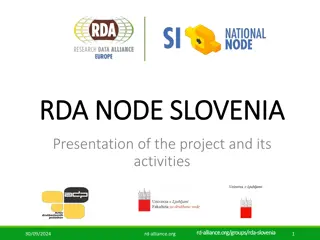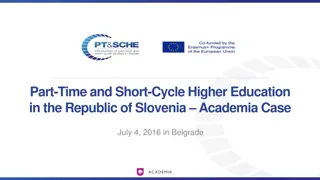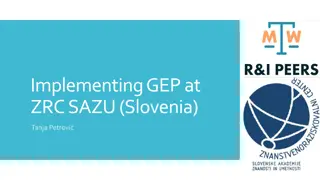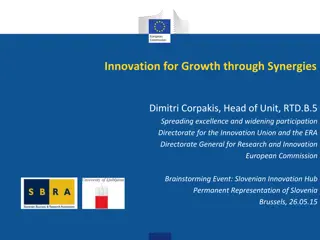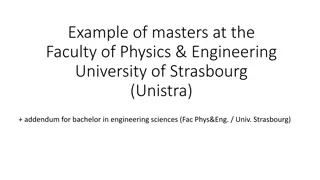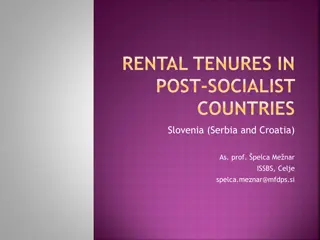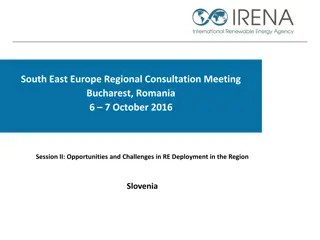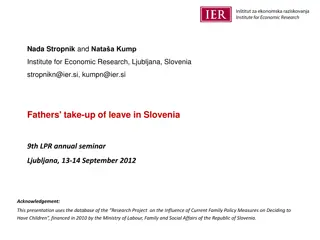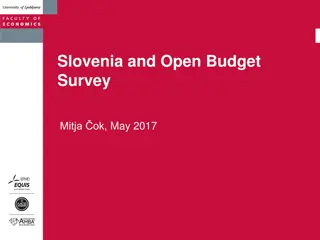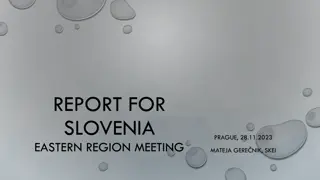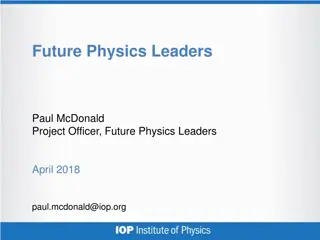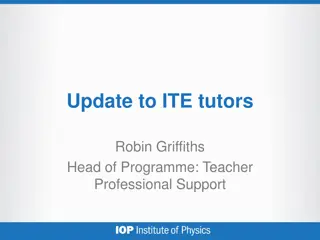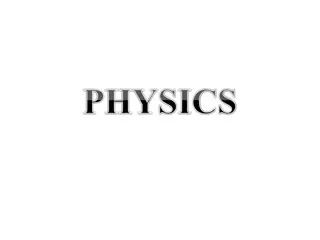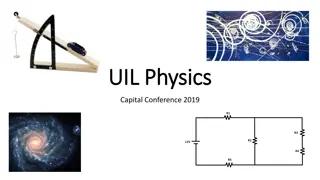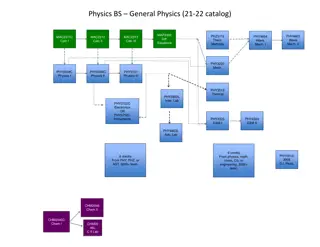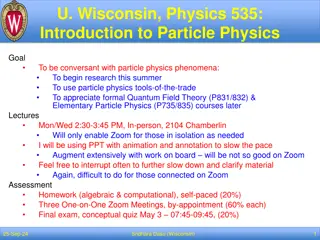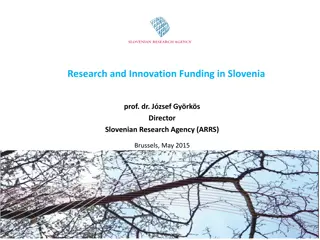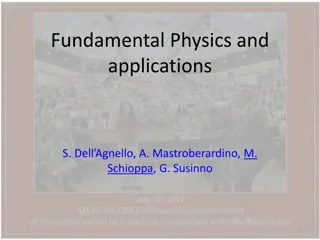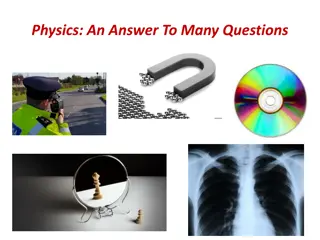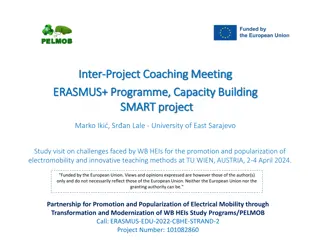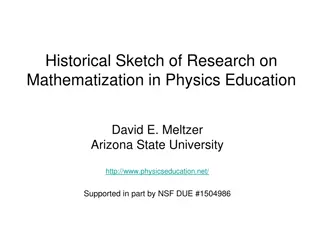Insights into Physics Education and Research in Slovenia
Bojan Hiti, a PhD student at Jozef Stefan Institute and University of Ljubljana, provides valuable perspectives on undergraduate and PhD studies in physics in Slovenia. The overview covers the structure of academic programs, opportunities for students, and insights into PhD positions at Slovenian HEP groups.
Download Presentation

Please find below an Image/Link to download the presentation.
The content on the website is provided AS IS for your information and personal use only. It may not be sold, licensed, or shared on other websites without obtaining consent from the author. Download presentation by click this link. If you encounter any issues during the download, it is possible that the publisher has removed the file from their server.
E N D
Presentation Transcript
Student's perspective RECFA visit to Slovenia, Ljubljana, 05.04.2019 Bojan Hiti, F9, Jozef Stefan Institute Bojan Hiti (IJS)
About myself About myself PhD Student at Jozef Stefan Institute (JSI) and University of Ljubljana (4th year) Young Researcher PhD programme (MR Mladi raziskovalec) Experimental particle physics department Study of CMOS detectors for ATLAS phase II upgrade Assistant teacher for an electronics course at Faculty for Mathematics and Physics (University of Ljubljana) The presentation is from an experimentalist perspective likely biased and not completely representative 05. 04. 2019 Bojan Hiti (IJS) 2 RECFA Slovenia 2019
Undergraduate physics study in Slovenia Undergraduate physics study in Slovenia Bachelor's degree (6 semesters) General courses No written thesis at the end Master's degree (4 semesters) Specialised programmes and courses Master's thesis ( 1 semester) HEP programmes in Universities of Ljubljana and Nova Gorica Study of Computing sciences is also a possible entry point Often undergraduate students decide to work as Student Assistants for more hands-on experience in the lab Mostly in lecture free periods or during extra years 05. 04. 2019 Bojan Hiti (IJS) 3 RECFA Slovenia 2019
PhD study in Slovenia PhD study in Slovenia 3 4 years Mandatory thesis 1 mandatory published paper Courses in the 1st year overview seminars for all physics PhD students Mandatory school min. 1x one week, but more easily possible No mandatory teaching But possible if desired State funded Young Researcher (MR) programme Salary 1.4 k gross per month (80 % of Slovenian avg. salary), subsidised housing by JSI Occasionaly other funding sources (mostly EU programmes) 25 % female PhD students in HEP 05. 04. 2019 Bojan Hiti (IJS) 4 RECFA Slovenia 2019
PhD positions at Slovenian HEP groups PhD positions at Slovenian HEP groups Three Slovenian institutes with PhD positions in HEP: Jozef Stefan Institute Experimental particle physics department ATLAS, Belle 2 1 2 positions per year Theoretical particle physics department University of Ljubljana Medical physics (detector development) University of Nova Gorica Astroparticle physics programme Auger and others 1 2 positions per year < 1 position per year 1 2 positions per year Total 4 5 PhD positions per year 05. 04. 2019 Bojan Hiti (IJS) 5 RECFA Slovenia 2019
Undergraduate students Undergraduate students No Bachelor's thesis Extent of Master's thesis only allows small projects What does it mean? Little to moderate contact with research groups before starting the PhD Contact required only after 9 semesters (Master's thesis) Short time to decide what next Not familiar with tools Student assistant positions a way to work in the group before that But requires student's own engagement in their free time Groups have to use different channels to attract students Classes, informal, promotion of summer schools ... 05. 04. 2019 Bojan Hiti (IJS) 6 RECFA Slovenia 2019
Research positions in Slovenia Research positions in Slovenia Senior positions Slovenian research system is quite specific Based on (PhD) students and long term positions Almost non-existent post doc positions At least in the experimental group, in the theoretical the situation is a bit different Post docs PhD students Undergrad students 05. 04. 2019 Bojan Hiti (IJS) 7 RECFA Slovenia 2019
What does it mean for PhD students? What does it mean for PhD students? Absence of post doc positions not a direct problem for future career take a post doc abroad It is an issue from technical/support side Senior advisors not so much involved in low level Also makes the group more nationally closed We see international collaboration as essential Improved scientific and personal development, team work Fortunately not difficult in HEP A good supervisor/advisor vital to help establish contacts However, collaboration often on higher levels Senior positions Post docs PhD students I do not intend to grade different approaches. For PhD students it mostly works well with good recognition in the community. Undergrad students 05. 04. 2019 Bojan Hiti (IJS) 8 RECFA Slovenia 2019
Work as a PhD student Work as a PhD student Work in international collaborations Encouraged to travel Research (CERN, KEK, ...) Service tasks & shifts at the experiments Workshops, conferences, schools Travel costs covered from the group's common pool, no fixed funds allocation per person Flexibility, amount of time abroad according to personal preferences (10 % >50 %) Outreach School visitors, Open days, International Masterclasses etc. Work Life balance: with some management it is quite OK 05. 04. 2019 Bojan Hiti (IJS) 9 RECFA Slovenia 2019
Career prospects in Slovenia Career prospects in Slovenia In academia Very limited number of institutes At the same time high proportion of permanent positions (right/lucky timing) Gender inequality increases at more senior positions; 10 % permanent positions by women Summary: to some extent predictable career opportunities Outside academia There are a few high tech companies with specific demands for HEP skills Other areas (engineering, software, finance, government agencies ...) Unfortunately very few direct spin-off companies Overall not bad prospects for PhD graduates 05. 04. 2019 Bojan Hiti (IJS) 10 RECFA Slovenia 2019
Conclusions Conclusions In general HEP PhD study in Slovenia is a good option Participation in cutting edge international collaborations Good opportunities for travel research, conferences, schools Some issues on technical side Few post doc advisors sometimes lack of support Little contact with groups prior to PhD Salary below Slovenian average High proportion of permanent positions in academia, but planning for a position still difficult Thank you! 05. 04. 2019 Bojan Hiti (IJS) 11 RECFA Slovenia 2019
